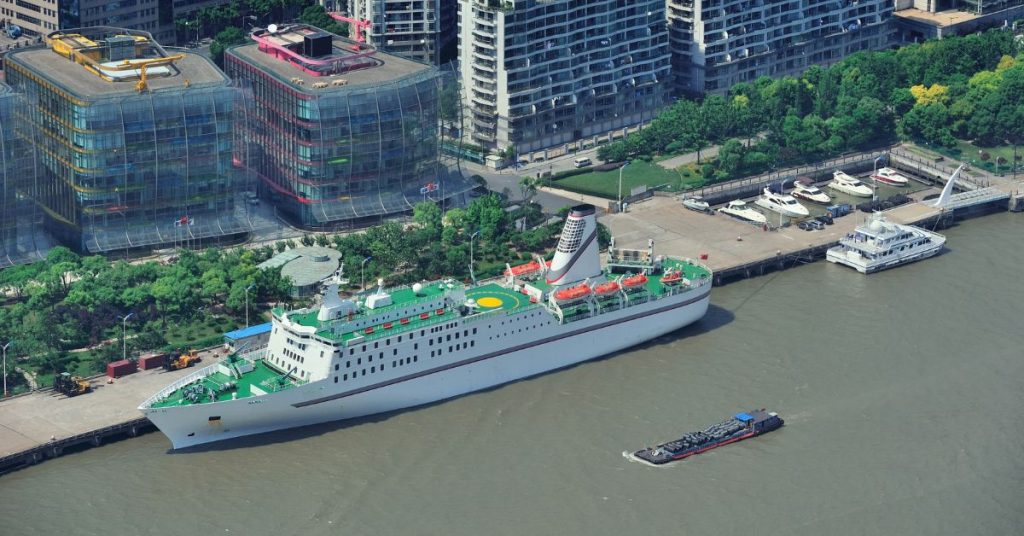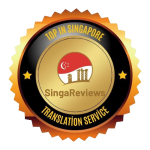
How Translation Helps Maritime Industry Businesses Gain a Competitive Edge in Singapore
In Singapore, the maritime industry plays a vital role in the country’s economy. Singapore is one of the world’s busiest ports, with thousands of ships passing through every year. For maritime businesses, using professional translation services becomes a powerful tool for gaining a competitive edge by enabling effective communication with international partners, suppliers, and customers..
Effective customer communication is one of the cornerstones of a successful company in the maritime industry. If you serve international customers or partner with foreign freight forwarders, any gap in communication is bound to cause confusion or misunderstandings, either directly or indirectly hurting your business. By speaking the same language, you build an instant connection and set the ground for productive discussions.
Importance of Translation in Maritime Business
The maritime industry involves complex processes, international regulations, and a wide range of stakeholders from different countries. Accurate translation of documents, contracts, technical manuals, safety guidelines, and communication materials is crucial. It helps avoid misunderstandings that could lead to legal problems, delays, or increased costs.
Translation also supports compliance with global maritime laws and standards. Each country may have different rules about shipping, loading, and environmental protection. Translating these regulations ensures that companies comply and operate smoothly across borders.
Effective communication through translation strengthens relationships with clients and partners by showing respect for their language and culture. Such respect builds trust and helps companies negotiate better deals and expand their market reach.
Benefits of Translation Services for Maritime Companies
- Improved Operational Efficiency: Clear instructions and manuals translated into local languages reduce errors and improve safety on vessels and at ports.
- Legal Compliance: Accurate translation ensures understanding and adherence to international maritime laws, avoiding fines and legal disputes.
- Market Expansion: Translating marketing materials and websites enables companies to attract clients from different countries, increasing business opportunities.
- Stronger Partnerships: Multilingual communication fosters trust and better collaboration with global stakeholders.
- Cost Savings: Reducing misunderstandings and errors through precise translation cuts down on costly delays and rework.
Case Study: A Singapore-based Shipping Company
A mid-sized shipping company in Singapore wanted to expand its business into Southeast Asia, targeting Malaysia, Indonesia, and Vietnam. They faced challenges because their documents were only in English, making it hard to communicate with local partners and clients. The language barrier caused delays and misunderstandings, affecting their reputation.
The company hired a professional translation service specialising in maritime language to translate contracts, safety manuals, and marketing content into Bahasa Melayu, Bahasa Indonesia, and Vietnamese. The translations were done with technical accuracy and cultural sensitivity.
As a result, the company noticed several improvements:
- A better understanding of safety procedures reduced accidents and improved crew confidence.
- Contracts translated into local languages clarified terms and reduced legal risks.
- Marketing materials in native languages attracted more clients and increased sales by 20% within the first year.
- Improved partner communication strengthened relationships, leading to more business collaborations.
This case shows how investing in translation not only helped the shipping company overcome language barriers but also gave it a competitive advantage in the regional market.
Maritime legal and technical documents
Maritime translations can be challenging; words, phrases and acronyms must be correctly interpreted first in the original language and then accurately translated to the target language. Suffice to say, unless the translator is familiar with the maritime terminology and a proficient linguist, the translated document is bound to have errors. Misinterpretation of the original legal text can cast a doubt on your intentions, while blatant mistakes in safety manuals or environmental reports can reflect poorly on your business practices.
By engaging a professional translation agency offering business translations for the shipping industry, you can avert this risk and convey your company and its practices authentically.
Maritime business website
Your website is your online identity – visited by potential clients and partners, and a major touch point for B2B communications. A multilingual site is helpful in communicating your services, values and expertise to a global audience. If you publish news and share marine notices, alerts or FAQs on your website, making it easily comprehensible to a larger audience will assume even more importance.
Imagine a scenario where heavy congestion at a busy port has held up the shipment at the terminal, or you are in the midst of responding to a change in the maritime law. If these issues have a direct bearing on your services or impact your business partners in some way, your website is a convenient place to post status updates or provide assurance in the language(s) your stakeholders understand.
Why Choose Professional Translation Services
Maritime language is full of specialised terms and jargon. Using general translation tools can lead to errors that have serious consequences in safety and legal matters. A professional translation service with maritime expertise ensures accurate, reliable, and timely translations tailored to the industry.
Moreover, experienced translators understand the cultural nuances and legal requirements of different countries, providing translations that resonate with local audiences and comply with regulations.
Contracts and trading agreements
If you are aiming to expand your services to far-reaching countries, much of your time may be invested in adhering to international requirements and guaranteeing at least minimum service levels. When scouting for partnerships in countries that don’t speak your language, it is customary to provide correctly translated documents or conduct bilingual meetings with a professional interpreter in tow.
Conclusion
In the globalised world of maritime trade, translation services are no longer optional. They are crucial for Singaporean maritime businesses that want to grow, remain competitive, and operate efficiently across borders. By ensuring clear, accurate, and culturally appropriate communication, translation helps companies avoid risks, save costs, and seize new market opportunities.
For maritime businesses aiming to boost their presence in Singapore and beyond, partnering with a trusted translation provider is a smart business solution.
Elite Asia offers expert translation services tailored to the maritime industry’s unique needs, helping you gain that competitive edge.
To learn more about how professional translation can support your maritime business, visit Elite Asia here.










